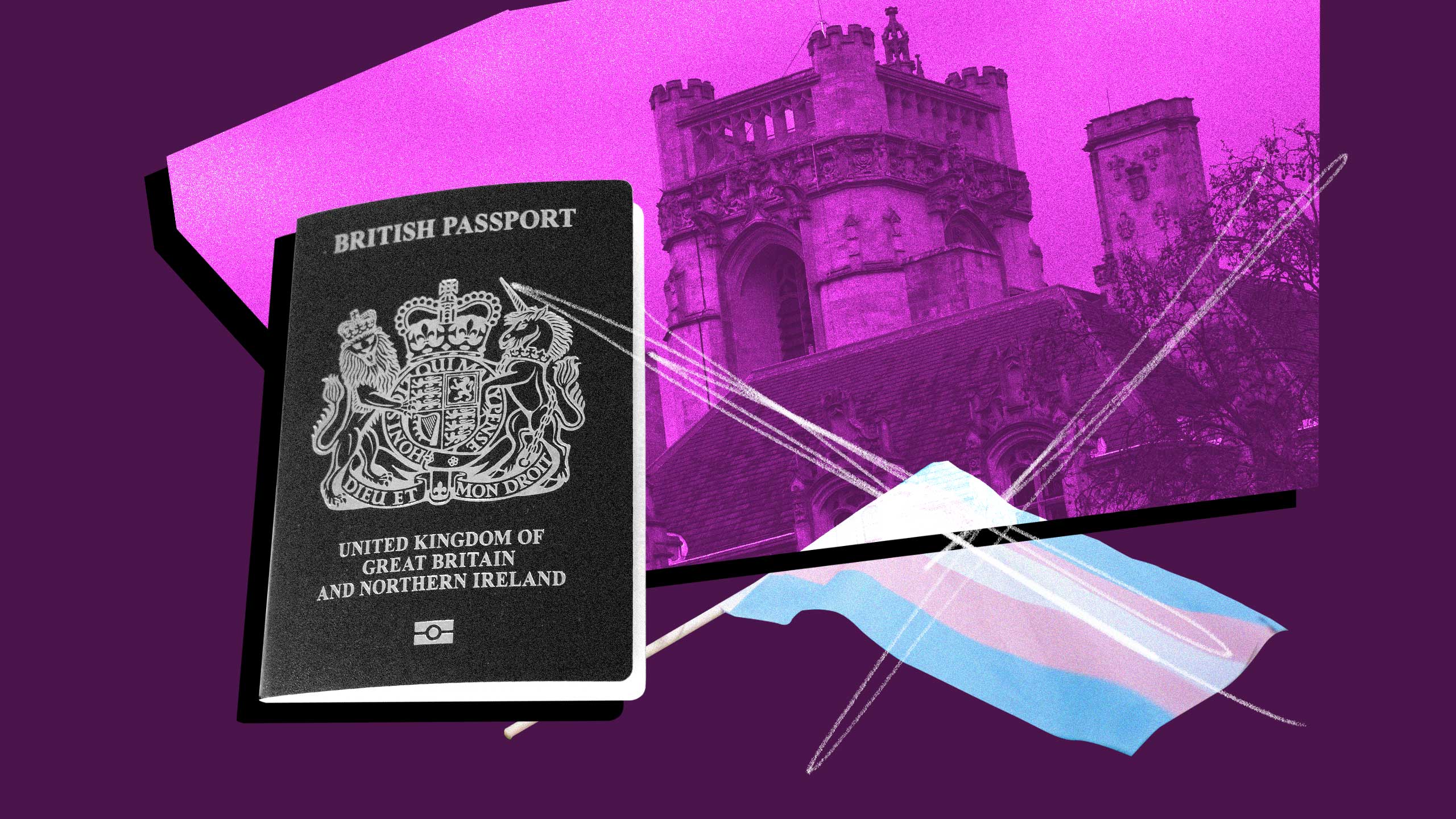Trans and non-binary communities in the United Kingdom faced another setback last week after its Supreme Court ruled against an appeal calling for passports with an “X” gender marker.
The ruling concluded that the denial of gender-neutral passports does not violate any laws set forth by the European Convention on Human Rights (ECHR). Plaintiff Christie Elan-Cane, who identifies as nongendered, argued that offering only male or female options on passport documents violates Articles 8 and 14 of the ECHR, which relate to the right to privacy and prohibition of discrimination respectively.
“On the basis that ‘male’ and ‘female’ are terms that aren’t going away anytime soon… I think it would be better to have a third option of ‘neither’ or ‘other,” Elan-Cane told the U.K. LGBTQ+ outlet PinkNews prior to the ruling. “I think that would solve more problems than it would create in terms of getting rid of those terms altogether.”
Elan-Cane has been fighting for the legal recognition of identities outside the gender binary for decades. The plaintiff’s first attempt at getting an “X” gender marker was rejected in 1995. After years of experiencing discrimination due to lack of affirming documentation, Elan-Cane filed a complaint to the U.K.’s High Court of Justice in 2018 and to its Court of Appeals in 2020, both of which ruled against recognizing non-binary identities.
Even after this week’s decision, Elan-Cane vowed to continue fighting and is planning to take the case directly to the European Court of Human Rights. “I very much regret to inform everyone that justice was not served today,” the activist wrote on Twitter.
As Elan-Cane presses forward, LGBTQ2S+ advocacy organization Stonewall U.K. called last week’s Supreme Court decision “disappointing—but not surprising.
“A lack of legal recognition causes non-binary and non-gendered persons very real problems,” Stonewall wrote in a series of Dec. 15 tweets. “The U.K. once again risks being left behind on the global stage….Currently in the U.K., non-binary people don’t have legal recognition. This has to change.”
But the Supreme Court ruling is only the latest heartache for trans and non-binary Britons amid a rising tide of transphobic rhetoric in the country. Last December, the U.K. High Court effectively required trans kids under the age of 16 to seek a court order to be able to receive puberty blockers from their physician. Although the court said that youth could forgo court authorization if they were able to demonstrate meaningful consent, judges suggested that meeting that standard would be difficult.
“It is highly unlikely that a child aged 13 or under would be competent to give consent to the administration of puberty blockers,” the ruling stated.
Although the ruling was overturned earlier this year, the short-lived ban reportedly had severe negative impacts on trans and non-binary youth. Britain’s largest gender clinic, The Tavistock and Portman NHS Foundation Trust, stopped providing referrals for affirming care to trans youth following the ruling, and the waitlist for treatments such as hormones and puberty blockers was already years long. Over 13,500 patients are currently awaiting gender-affirming care, according to the BBC.
Meanwhile, one in seven trans people were refused medical treatment in 2021, according to a study from the trans-led advocacy group TransActual. Over 50 percent of trans respondents reported avoiding visiting their doctor when sick, and 98 percent described their transition-related care as inadequate.
The British government itself has been criticized for sidelining and ignoring the concerns of trans and non-binary communities. In June 2020, Prime Minister Boris Johnson abandoned long-awaited changes to the Gender Recognition Act (GRA) that would allow trans people to correct their legal gender without a medical diagnosis of gender dysphoria. Months later, the government’s LGBT Advisory Panel was disbanded for supporting the right of trans individuals to determine their own gender.
But when it comes to trans and non-binary people’s right to accurate passports, there is reason to hope. Earlier this year, the United States issued its first gender-neutral passport to intersex activist Dana Zzyym, who initially sued for affirming documentation back in 2015. Trans and non-binary Canadians have had the ability to identify their gender as “X” on passports since 2019.
Globally, more than a dozen nations provide options other than “M” and “F” on passports, including Colombia, Germany, India and New Zealand.


 Why you can trust Xtra
Why you can trust Xtra


